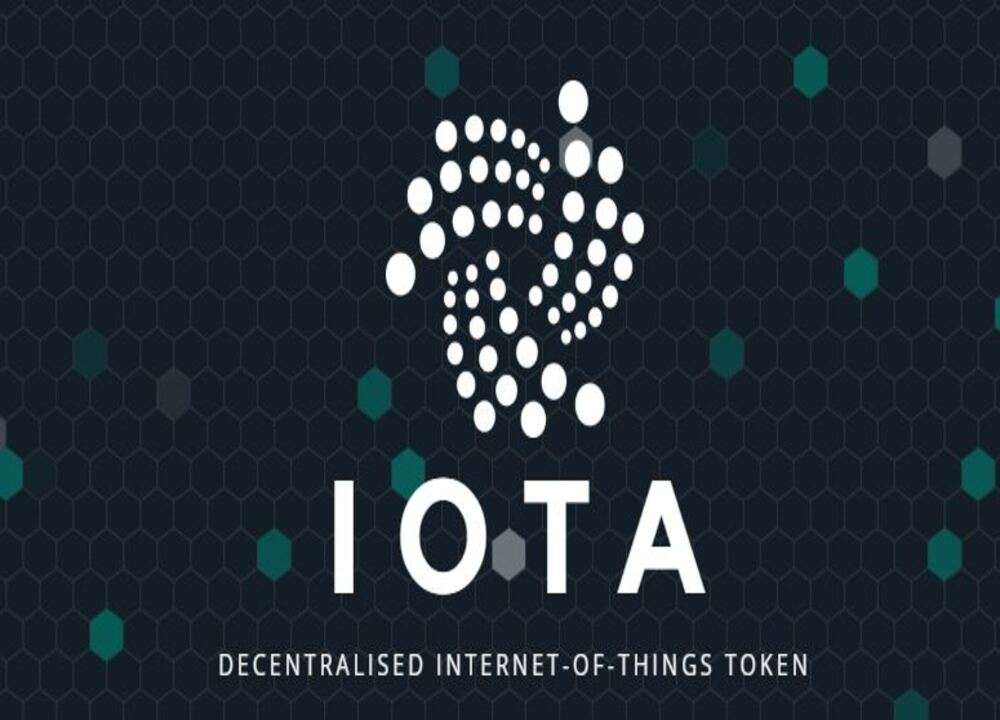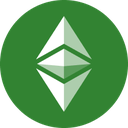-
 Bitcoin
Bitcoin $84,374.8120
5.43% -
 Ethereum
Ethereum $1,934.0923
5.95% -
 Tether USDt
Tether USDt $0.9999
0.02% -
 XRP
XRP $2.3441
5.47% -
 BNB
BNB $584.1419
2.01% -
 Solana
Solana $132.6738
9.13% -
 USDC
USDC $0.9999
0.00% -
 Cardano
Cardano $0.7345
5.21% -
 Dogecoin
Dogecoin $0.1713
5.29% -
 TRON
TRON $0.2218
-0.70% -
 Pi
Pi $1.5247
-6.78% -
 Chainlink
Chainlink $14.4445
13.33% -
 UNUS SED LEO
UNUS SED LEO $9.7813
0.71% -
 Stellar
Stellar $0.2754
2.45% -
 Hedera
Hedera $0.1952
4.83% -
 Avalanche
Avalanche $18.8958
5.29% -
 Sui
Sui $2.3445
10.35% -
 Shiba Inu
Shiba Inu $0.0...01259
6.55% -
 Toncoin
Toncoin $2.8799
6.54% -
 Litecoin
Litecoin $92.0661
6.33% -
 Bitcoin Cash
Bitcoin Cash $329.9583
1.10% -
 Polkadot
Polkadot $4.1757
8.84% -
 MANTRA
MANTRA $6.2470
-1.49% -
 Ethena USDe
Ethena USDe $0.9998
0.03% -
 Dai
Dai $1.0000
-0.01% -
 Bitget Token
Bitget Token $4.4418
7.40% -
 Hyperliquid
Hyperliquid $14.1939
13.51% -
 Monero
Monero $207.7330
1.05% -
 Uniswap
Uniswap $6.0682
6.23% -
 NEAR Protocol
NEAR Protocol $2.6424
6.20%
What is the issuance and circulation of IOTA coins?
The issuance of all 2.78 billion IOTA coins upon network genesis in 2015 ensures their entire circulating supply is available for network transactions and rewards to consensus participants.
Nov 18, 2024 at 12:02 am

What is the Issuance and Circulation of IOTA Coins?
IOTA is a distributed ledger technology that uses a unique data structure called the Tangle to record transactions. Unlike blockchain, which uses blocks to store transactions, the Tangle is a directed acyclic graph (DAG) that allows transactions to be processed in parallel. This makes IOTA more scalable and efficient than blockchain, as it can handle a higher volume of transactions without sacrificing security.
IOTA coins, also known as MIOTA, are the native cryptocurrency of the IOTA network. They are used to power transactions on the network and to reward users who participate in the network's consensus mechanism.
Issuance of IOTA Coins
The total supply of IOTA coins is 2,779,530,283. All of these coins were issued at the genesis of the IOTA network in 2015. There is no mining process for IOTA coins, as they are not created through a proof-of-work or proof-of-stake mechanism.
Circulation of IOTA Coins
The circulating supply of IOTA coins is approximately 2,779,530,283. This means that all of the issued coins are in circulation and are available for use on the network.
Use Cases for IOTA Coins
IOTA coins are used to power a variety of applications on the IOTA network, including:
- Micropayments: IOTA coins can be used to make small payments, such as those for goods and services purchased online.
- Machine-to-machine payments: IOTA coins can be used to automate payments between machines, such as those for vending machines or self-driving cars.
- Data storage: IOTA coins can be used to pay for data storage on the IOTA network. This can be used to create decentralized data storage solutions that are more secure and reliable than traditional centralized storage solutions.
- Identity management: IOTA coins can be used to create digital identities that are stored on the IOTA network. This can be used to create more secure and efficient identity management systems.
Conclusion
IOTA coins are the native cryptocurrency of the IOTA network. They are used to power transactions on the network and to reward users who participate in the network's consensus mechanism. The total supply of IOTA coins is 2,779,530,283, and the circulating supply is approximately 2,779,530,283. IOTA coins have a variety of use cases, including micropayments, machine-to-machine payments, data storage, and identity management.
Disclaimer:info@kdj.com
The information provided is not trading advice. kdj.com does not assume any responsibility for any investments made based on the information provided in this article. Cryptocurrencies are highly volatile and it is highly recommended that you invest with caution after thorough research!
If you believe that the content used on this website infringes your copyright, please contact us immediately (info@kdj.com) and we will delete it promptly.
- March May Bring Significant Opportunities for Those Watching the Crypto Market Closely
- 2025-03-15 01:50:53
- Coinbase Is Not Delisting Floki – Here’s the Truth
- 2025-03-15 01:50:53
- Big Things Are Happening in the Realm of XRP! Experts Predict That XRP May Soon Achieve a $1 Trillion Market Value
- 2025-03-15 01:50:53
- XRP May Soon Achieve a $1 Trillion Market Value Due to Ripple's Rapid Growth
- 2025-03-15 01:50:53
- Why Remittix (RTX) Is Outperforming Solana (SOL) and Becoming the New High-Growth Opportunity
- 2025-03-15 01:50:53
- Bitcoin (BTC) Fails to Reclaim $84,000 Resistance Again, Dips 4%
- 2025-03-15 01:50:53
Related knowledge

What is Ethereum’s Slashing mechanism and how to punish malicious behavior?
Feb 20,2025 at 03:08am
Key PointsOverview of slashingDifferent types of slashing in EthereumIncentives and consequences of slashingIdentifying and reporting slashed validatorsOngoing discussions and potential improvementsEthereum's Slashing Mechanism: Punishing Malicious BehaviorEthereum's slashing mechanism is an essential tool for ensuring network security and punishing mal...

What is the verifier node of Ethereum and how to become a verifier?
Feb 19,2025 at 06:00pm
The Verifier Node of Ethereum: A Comprehensive GuideKey Points:What is a Verifier Node?How to Become a Verifier NodeResponsibilities and Rewards of a Verifier NodeMinimum Requirements for Becoming a Verifier NodePotential Difficulties in Running a Verifier Node1. What is a Verifier Node?A Verifier Node is an independent entity on the Ethereum network th...

What is Ethereum’s staking, and how to participate and earn money?
Feb 19,2025 at 04:37pm
Key Points:Understanding Ethereum's Staking MechanismSteps to Participate in StakingBenefits and Rewards of StakingSecurity and Risk ConsiderationsTechnical Requirements and Hardware OptionsPotential Challenges and Troubleshooting TipsFAQs on Ethereum StakingWhat is Ethereum's Staking?Proof-of-Stake (PoS) is a consensus mechanism used in blockchain netw...

What is Ethereum’s DAO (Decentralized Autonomous Organization) and how does it work?
Feb 20,2025 at 03:12am
Key PointsDefinition and Structure of a DAOGovernance and Decision-Making in DAOsBenefits and Use Cases of DAOsChallenges and Limitations of DAOsWhat is Ethereum's DAO (Decentralized Autonomous Organization) and How Does It Work?Definition and Structure of a DAOA Decentralized Autonomous Organization (DAO) is an innovative governance and management fram...

What is Ethereum's multi-signature wallet and how to improve security?
Feb 20,2025 at 02:18pm
Key Points:Understanding the Concept of a Multi-Signature WalletBenefits and Drawbacks of Multisig WalletsRequirements for Setting Up a Multisig WalletStep-by-Step Guide to Generating a Multisig WalletImplementing Strategies for Enhanced Security1. Understanding the Concept of a Multi-Signature WalletA multi-signature (multisig) wallet in the Ethereum e...

What is Ethereum's oracle and how to provide data for smart contracts?
Feb 21,2025 at 01:30am
Key Points:Understanding the concept of oracles in EthereumExploring different types of oraclesDetailed guide on how to provide data for smart contractsAddressing potential challenges and considerationsWhat is Ethereum's Oracle?Oracles are crucial components in the Ethereum ecosystem, enabling smart contracts to access real-world data and off-chain even...

What is Ethereum’s Slashing mechanism and how to punish malicious behavior?
Feb 20,2025 at 03:08am
Key PointsOverview of slashingDifferent types of slashing in EthereumIncentives and consequences of slashingIdentifying and reporting slashed validatorsOngoing discussions and potential improvementsEthereum's Slashing Mechanism: Punishing Malicious BehaviorEthereum's slashing mechanism is an essential tool for ensuring network security and punishing mal...

What is the verifier node of Ethereum and how to become a verifier?
Feb 19,2025 at 06:00pm
The Verifier Node of Ethereum: A Comprehensive GuideKey Points:What is a Verifier Node?How to Become a Verifier NodeResponsibilities and Rewards of a Verifier NodeMinimum Requirements for Becoming a Verifier NodePotential Difficulties in Running a Verifier Node1. What is a Verifier Node?A Verifier Node is an independent entity on the Ethereum network th...

What is Ethereum’s staking, and how to participate and earn money?
Feb 19,2025 at 04:37pm
Key Points:Understanding Ethereum's Staking MechanismSteps to Participate in StakingBenefits and Rewards of StakingSecurity and Risk ConsiderationsTechnical Requirements and Hardware OptionsPotential Challenges and Troubleshooting TipsFAQs on Ethereum StakingWhat is Ethereum's Staking?Proof-of-Stake (PoS) is a consensus mechanism used in blockchain netw...

What is Ethereum’s DAO (Decentralized Autonomous Organization) and how does it work?
Feb 20,2025 at 03:12am
Key PointsDefinition and Structure of a DAOGovernance and Decision-Making in DAOsBenefits and Use Cases of DAOsChallenges and Limitations of DAOsWhat is Ethereum's DAO (Decentralized Autonomous Organization) and How Does It Work?Definition and Structure of a DAOA Decentralized Autonomous Organization (DAO) is an innovative governance and management fram...

What is Ethereum's multi-signature wallet and how to improve security?
Feb 20,2025 at 02:18pm
Key Points:Understanding the Concept of a Multi-Signature WalletBenefits and Drawbacks of Multisig WalletsRequirements for Setting Up a Multisig WalletStep-by-Step Guide to Generating a Multisig WalletImplementing Strategies for Enhanced Security1. Understanding the Concept of a Multi-Signature WalletA multi-signature (multisig) wallet in the Ethereum e...

What is Ethereum's oracle and how to provide data for smart contracts?
Feb 21,2025 at 01:30am
Key Points:Understanding the concept of oracles in EthereumExploring different types of oraclesDetailed guide on how to provide data for smart contractsAddressing potential challenges and considerationsWhat is Ethereum's Oracle?Oracles are crucial components in the Ethereum ecosystem, enabling smart contracts to access real-world data and off-chain even...
See all articles























































































